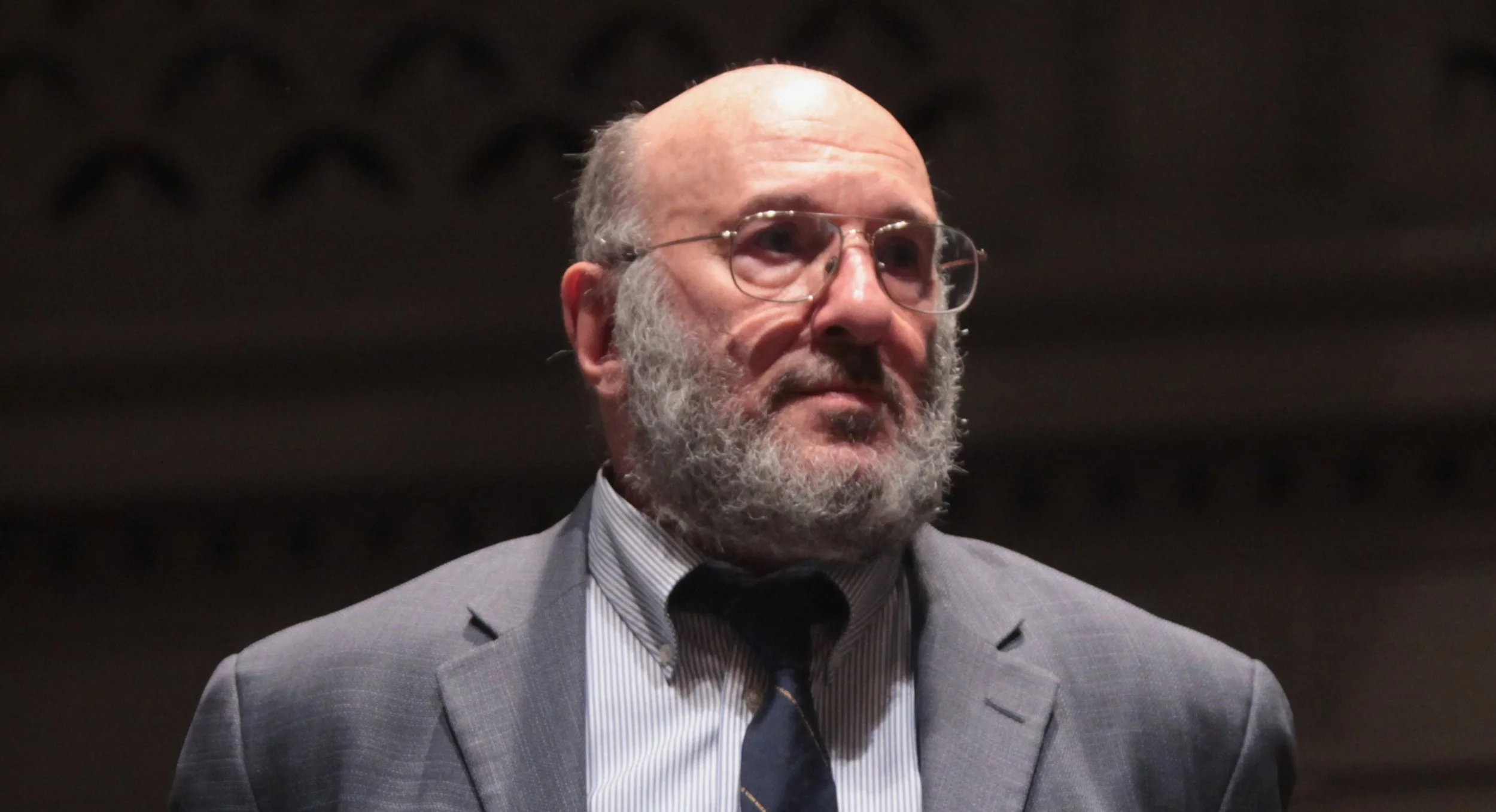There are four competing philosophical theories of the parental role, only one of which is sound and compatible with libertarian principles. Rather than adopting the one correct theory, unfortunately Walter Block, chose to combine the three unsound theories in his own theory of the parental role.
A Summary of Block's Theory
Here is a summary of Block's theory:
- Parents have no positive obligations to their children.
- If one becomes a parent, one is homesteading a special kind of limited ownership of a child as a property right.
- Taking on this property right over the child makes parents bound by various rules that govern homesteading and abandonment, including a rule that parents must care for the child (not neglect him) whilst they have ownership of him.
- If the parents fail to care for the child whilst they have ownership of him, they are committing the crime of forestalling against other people who might be interested in acquiring this property right in the child.
- Parents can give up a child whenever they want, but only if they notify all other potentially interested parties first so that other parties have the opportunity to take over ownership. Failing to notify is again to commit the forestalling crime against other potential owners.
Block's Contradiction
Block's theory of the parental role starts out by building on Rothbards' ideas on this topic. Like Rothbard, Block defends both the theory of parenting as charity (arguing that parents do not have positive obligations) and the add-on variant of the theory of parental ownership (arguing for parental authority as a homesteaded property right).
At this point Block departs from Rothbard because he is unwilling to accept the permissibility of negligence implied by the theory of parenting as charity. Rothbard famously acknowledged that since parents have no positive obligations, there is nothing to stop them starving their children to death. Block sees this implication as an "embarrassment" to libertarianism and wants to negate it.
So Block has two mutually contradictory claims:
- He wants to keep Rothbard's claim that parents have no positive obligations.
- Yet at the same time he wants to claim that parental negligence is illegitimate.
How does he resolve the contradiction?
Smuggling In Positive Obligations
Block's challenge is to explain why the ownership of children entails providing care to them. He can't argue that parents have an obligation to provide care, since he denies parental obligations. He can't argue that it's because children need maintenance, since the mere fact of neediness does not impose any duties on others.
Block asserts that parents cannot legitimately withhold care from children because to do so would be committing a kind of forestalling against other potential caregivers. His justification involves an appeal to his conception of the rules of homesteading and the rules that determine what constitutes abandonment. His denial that any positive obligations are implied in his theory is not a sustainable claim.
Despite his protestations to the contrary, Block himself does argue for positive parental obligations, but he does so in an extremely circuitous way. Ultimately, his argument amounts to this: as part of becoming a parent, you voluntarily take on an obligation to care for your children, because (according to Block) you are homesteading a child and this makes you bound by various rules governing homesteading and abandonment.
Block's assertion does not explain why a property owner must not neglect his property without abandoning it. I can just assert that all car owners must look after their vehicles properly or else give them up or sell them to other potential owners, since failing to do so would be an act of forestalling against the other potential owners. But both Block's assertion about parents and my assertion about car owners are false. There is no duty of maintenance as part of property ownership. If I let my car slowly degrade until it is no longer drivable, I have not committed an act of aggression against any other person who might want to own the car instead of me.
Given Block's claim that parents are "owners" of children, he cannot treat parents who choose to neglect a child without giving it up differently from a car owner who chooses to neglect his car without giving it up. So his argument denying the legitimacy of parental negligence doesn't work on its own terms. It is a surreptitious attempt to introduce positive obligations under a different guise.
Obligations to Society, Not The Child
Since Block argues that parents don't owe their children anything, but also that parents are obliged to look after their children, there must be some other party to whom a parent is obligated to if they have an obligation to care for their child.
To whom do parents owe this obligation to care for their child whilst they "own him", according to Block? The positive obligation that Block is arguing for is an obligation to the rest of society—to every other person on planet earth who might otherwise want to raise the child—and not to the child.
In making this argument, Block is invoking a variant of social contract theory as the basis of voluntary parental obligations. Whereas Horwitz puts forward a social contract argument plainly, Block uses extremely convoluted arguments that ultimately reach the same destination, while simultaneously denying that he has done any such thing.
Motivated Reasoning
In a footnote of one of his articles, Block provides an insight into his strategy of argumentation:
If it came to it, I would rather concoct an implicit contractual obligation that arises out of land ownership to notify of abandonment, than to concede that there is a positive obligation to notify, and I would prefer to do either than allow it to be legal that the mother could starve the baby without notification.
Here Block shows his motivated reasoning: he begins with the conclusions he wants (no parental obligations, no neglect) and is willing to "concoct" whatever argument will deliver them. He goes on to argue that "happily, it does not come down to this" as he thinks these conclusions can be deduced rationally without him having to force them. He doesn't seem to realise that this is exactly what he has done.
From Denial to Absurdity
Block is so concerned to reject the claim that parents have enforceable positive obligations towards their children that he is willing to deploy arguments leading to absurd implications. For example, he argues that parents cannot be liable for any obligation as a result of having placed their child in a state of peril by creating him, since in creating him they already gave him a net benefit.
The denial of liability for parents on these moral offsetting grounds implies that parents have a sort of blank check to do anything to their children. Since the gift of life is so valuable, there is nothing that a parent could ever do that could outweigh the net benefit in a cost-benefit calculation. The reductio ad absurdum of this idea is the argument that because it is of a higher net benefit to be created and then killed than not to be created at all, parents have no obligation to refrain from killing their children.
This reductio is not merely theoretical. Block bites the bullet and applies it directly in his defence of abortion. He argues that since it is better to be created for a few months and then killed via abortion than to not have been created at all, abortion cannot be a rights violation. As he puts it, "At least the fetus lives for a little while, which, if we hold life as better than death, or, in this case, non existence, must be counted as an enhancement, not a deterioration." This is absurd.
Block's denial of parental obligation leads him to hold other bizarre ideas about children and their rights. For example, Block thinks that an unborn child is an "aggressor" and "trespasser" if the mother changes her mind about wanting to have a baby. This is akin to claiming that the unconscious pedestrian you just ran over is a trespasser if, while driving him to the hospital, you decide you no longer feel like helping him.
Block has a strangely callous way of emphasising his belief that parents can give up their children for adoption at any point blamelessly. As Block puts it, they are "free to dump him out". This is itself evidence of the attitude that results from thinking that parents have no obligations. Block does not understand that one cannot legitimately give up parental obligations.
Yet for all his bizarre views regarding children, Block is also one of the few libertarians to denounce circumcision as a violation of the nonaggression principle–an argument I greatly respect. His article on this subject is excellent and provides an example where he does apply libertarian principles consistently to a children's rights issue.
A Better Alternative: Causal Parental Responsibility
The irony is that if Block adopted the theory of causal parental responsibility, he would achieve much of what he wanted without all the convoluted and false arguments that he had to make in order to combine three unsound theories together.
Defending Against Welfare Claims
In order to defend against the claims of socialists for positive obligations like welfare, Block thinks he has to deny that there are ever any legitimate positive obligations (including parental obligations). As Block himself puts it:
Once we open up the floodgates of positive obligations, there is no logical stopping place. We will be logically obligated to accept a right to food, clothing, shelter, medical care, etc. Welfare ‘rights’ cannot be far behind.
This is an unprincipled objection by Block. If it were true that parental obligations are valid and truly imply general welfare obligations, then consistency would require us to accept welfare too. One cannot deny a truth on the grounds that it refutes a theory that one holds dear. However, this is a non-issue. Parental obligations are valid and they do not entail welfare obligations.
Causal parental responsibility does not entail general welfare obligations because the justification of parental obligations is specific, not general. Also, the justification is based on responsibility for an individual’s own actions, not some general responsibility for humanity arising from membership of the human race.
Without contradiction, we can both acknowledge the validity of chosen positive obligations (including those obligations one must accept as “chosen” as a consequence of one’s actions) and deny the validity of unchosen positive obligations.
Justifying Parental Authority
Block wants to legitimise parents having authority to look after their children, so he argues for a false property right in children with all the errors that this entails. Causal parental responsibility provides a justification for parental authority without appealing to the indefensible concept of parental ownership of children.
Denying The Legitimacy of Negligence
Block wants to deny the validity of parental negligence, so he appeals to a false obligation to other potential "owners" to get this result. Causal parental responsibility provides clear grounds for denying the validity of negligence without appealing to a fallacious social contract.
The Wrong Starting Point
Block mistakenly thinks that he must deny parental obligations in order to save libertarianism from the argument for welfare. This false premise led him to construct elaborate arguments to deny obligations while simultaneously rejecting the logical consequences of doing so. The result is a conceptual mess.
By denying parental obligations outright, Block set his project on a false path. The theory of causal parental responsibility achieves what Block was aiming for– grounding parental authority and rejecting the legitimacy of negligence– while at the same time preserving coherence and avoiding the contradictions that plague his approach. More importantly, it provides the only sound libertarian theory of the parental role.














